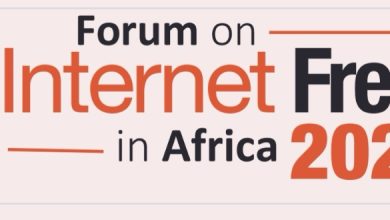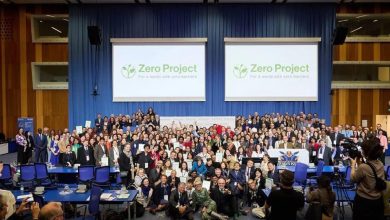Biosecurity Game Changers Fellowship – PH 330
Brown University: School of Public Health: Health Services, Policy & Practice

Location
Providence, RI
Open Date
Apr 22, 2024
Deadline
May 29, 2024 at 11:59 PM Eastern Time
Description
Biosecurity Game Changers: Launching a New Fellowship Opportunity
In Summer 2024, the Brown University Pandemic Center, in collaboration and consultation with global change-making and normative organizations including the Coalition for Epidemic Preparedness Innovations (CEPI), the International Biosecurity and Biosafety Initiative for Science (IBBIS), the World Health Organization Global Health Emergencies Corps, the Pandemic Action Network (PAN), the Africa Centres for Disease Control and Prevention, the Biological Weapons Convention Implementation Support Unit, and Gavi, the Vaccine Alliance is launching a new fellowship opportunity for early to mid-career professionals in Africa and the United States. The fellowship is aimed at training and networking the next generation of health emergency leaders to better prepare them to make decisions, as well as develop policies and programs to prevent and prepare for worst case scenarios.
Fellowship Goals and Objectives
Next generation health security leaders, who will be making future decisions about globally impactful biological threats and pandemic risks, must be globally networked and highly capable of envisioning, preparing for, and preventing worst case biological scenarios. Through the Biosecurity Game Changers Fellowship, we seek to develop a new network of early and mid-career biosecurity leaders and to fundamentally change how they are trained. Beginning in the United States and in Africa, we ultimately aim to forge a global network of next generation biosecurity decision-makers. The initiative will include a fellowship opportunity rooted in operational experience, implemented in parallel with a series of targeted workshops, in which fellows and other early-to-mid career biosecurity professionals will participate.
The Biosecurity Game Changers fellowship seeks to provide next generation decision-makers with the skills and abilities to:
● Quickly assess emerging biological risk scenarios and identify actions to prevent, detect, and respond more quickly.
● Deeply understand different types of emerging biological risks (e.g., naturally occurring outbreaks, laboratory accidents, deliberate biological weapons use.)
● Take recommendations and put them into action in governmental and non-governmental contexts, nationally and internationally.
● Develop and pitch options and solutions to senior leaders.
● Complete an impactful project focused on prevention and preparedness for worst case scenarios – in partnership with leading global institutions focused on biosecurity, biosafety, and/or pandemic preparedness and response.
Partners
The Biosecurity Game Changers Fellowship will be implemented by the Brown University Pandemic Center, in partnership with collaborating institutions focused on solutions at the intersection of biosecurity and global health, including CEPI, IBBIS, the Pandemic Action Network, the BWC Implementation Support Unit, and Gavi, and in consultation with international and normative entities (e.g., the Africa Centres for Disease Control and Prevention and the World Health Organization Global Health Emergency Corps).
Fellowship Criteria and Selection Process
● Selections: In 2024, up to 10 fellows will be selected
● Expectations: Each fellow will be expected to work up to 50% time, negotiated with the fellows’ home academic institution and/or employer. The fellowship is not a full-time opportunity, rather, it is intended to provide an in-depth experience for fellows as part of an operational project team.
● Partner Institutions: Each fellow’s project will be conducted in collaboration with a partner institution. The project will be focused on a specific aspect (see below) of improving biosecurity, biosafety, and/or pandemic preparedness and response.
● Mentorship: Fellows will receive mentorship from faculty and staff at the Brown Pandemic Center, as well as the partner institution in which the fellow is placed.
● Stipend and Travel Support: Travel funding and a stipend will be provided for each selected fellow, with support between $20,000 (USD) and $30,000 (USD). Fellows will be expected to travel to attend two workshops per year, as well as the potential for visits to their partner institutions, to be discussed among the fellow and their placement host.
2024 Project Areas of Focus
In 2024, there will be a number of operational placement opportunities. These include:
1. The Coalition for Epidemic Preparedness Innovations (CEPI) is an innovative global partnership between public, private, philanthropic, and civil society organizations, with a mission to accelerate the development of vaccines and other biologic countermeasures against epidemic and pandemic threats so vaccines can be accessible to all people in need. As recognition of the crucial intersection between pandemic preparedness and biosecurity, CEPI has recently launched a new, dedicated, biosecurity function, with generous support from Global Affairs Canada. CEPI biosecurity will elevate the important role of biosecurity across the end-to-end preparedness ecosystem and to accelerate global progress towards safely and securely achieving the 100 Days Mission. We are seeking enthusiastic, collaborative, and highly motivated rising leaders to spearhead efforts aimed at: strengthening oversight of high-consequence research and development, enhancing global biosecurity capabilities, with a focus on the Global South, driving biosecurity for equity and the 100 Days Mission, reducing emerging technology risks, including at the artificial intelligence/biosecurity nexus, and accelerating biosecurity innovation. CEPI is eager to tailor specific projects to the unique experience, expertise, and interest of Fellows.
2. The International Biosecurity and Biosafety Initiative for Science (IBBIS) is an independent, international organization dedicated to realizing a world in which bioscience and biotechnology can advance and flourish safely and responsibly. We work collaboratively with global partners to strengthen biosecurity norms and develop innovative tools to uphold them. IBBIS undertakes this work to safeguard science and reduce the risk of catastrophic events that could result from deliberate abuse or accidental misuse of bioscience and biotechnology. We are looking for self-motivated, passionate future leaders who are looking for a stepping stone towards a career in biosecurity. Successful candidates will be offered the opportunity to manage a substantial biosecurity-related project, from start to finish. Our current focus is primarily on gene synthesis screening and have identified a wide range of challenging, rewarding, and highly necessary technical and policy-oriented projects.
3. The Pandemic Action Network (PAN) is a civil society network launched in 2020, now comprises more than 400 partners across sectors from across the world working to build and sustain political will, enact policies, and mobilize resources to ensure humanity is better prepared to stop disease outbreaks from becoming pandemics. Current strategic areas of focus include networked advocacy to drive equitable access to pandemic countermeasures, sustainable financing to strengthen local and regional pandemic prevention, preparedness, and response (pandemic PPR) capacity, systemic reforms, such as through the pandemic agreement, to ensure strong governance and accountability on pandemic PPR, and a push for climate-resilient, pandemic-resilient health systems.
4. Gavi, the Vaccine Alliance (Gavi), is a public-private partnership that helps vaccinate more than half the world’s children against some of the world’s deadliest diseases. The Vaccine Alliance brings together developing country and donor governments, the World Health Organization, UNICEF, the World Bank, the vaccine industry, technical agencies, civil society, the Bill & Melinda Gates Foundation and other private sector partners. View the full list of donor governments and other leading organizations that fund Gavi’s work here. Since its inception in 2000, Gavi has helped to immunize a whole generation – over 1 billion children – and prevented more than 17.3 million future deaths, helping to halve child mortality in 78 lower-income countries. Gavi also plays a key role in improving global health security by supporting health systems as well as funding global stockpiles for Ebola, cholera, meningococcal and yellow fever vaccines. After two decades of progress, Gavi is now focused on protecting the next generation, above all the zero-dose children who have not received even a single vaccine shot. The Vaccine Alliance employs innovative finance and the latest technology – from drones to biometrics – to save lives, prevent outbreaks before they can spread and help countries on the road to self-sufficiency.
5. The Biological Weapons Implementation Support Unit (BWC ISU) is part of the United Nations Office for Disarmament Affairs and supports the implementation of the Biological Weapons Convention. The ISU supports States Parties’ efforts to implement the decisions and recommendations of the review conference, serves as an information exchange point for national implementation, collates national measures to implement all aspects of the Convention, as well as biosafety and biosecurity obligations, assists States Parties in meeting the obligations to translate the BWC into effective domestic measures, provides support and assistance for Confidence-Building Measures, provides support and assistance for obtaining universality of the Convention, and helps coordinate assistant requests.
6. The Pandemic Center at the Brown University School of Public Health works to reduce vulnerabilities and increase resilience to pandemics, other biological emergencies, and the harms they pose to health, peace, security and prosperity. The Center seeks to expand knowledge on pandemic preparedness and response capacities through research and put them into practice by actively engaging with decision-makers to enact lasting change.
7. Additional Placement Options are also under discussion and may become available.
Selection Process
Successful candidates will be interviewed virtually, beginning June 3, 2024, and all applicants will be notified of final selections by no later than the first week of August.
For Additional Information, Please Contact
Please feel free to contact gamechangers@brown.edu with any questions or concerns.
Qualifications
This fellowship is currently open to early to mid-career professionals in Africa and the United States. Diversity, equity, and inclusion are integral to the commitment of the Pandemic Center and University. Accordingly, the Pandemic Center seeks qualified candidates who can contribute to equity, diversity and inclusion through service, mentorship, teaching, and scholarship.
Recommended Qualifications:
Applicants must have graduated from an undergraduate institution.
Have at least 5 years of post-baccalaureate training or professional experience in a field related to health security.
Applications must be able to travel to Addis Ababa, Ethiopia for the first workshop, to be hosted the first week of September 2024. Travel funding will be provided.
Application Instructions
Applicants should submit the following materials on Interfolio by no later than 11:59 p.m. (Eastern) on May 29, 2024:
A Curriculum Vitae (or Resume)
A Letter of Intent, including a Personal Statement of no more than 800 words outlining:
Your interest and qualifications for the fellowship
Why you think biosecurity and pandemic decision-making, and associated training, needs to change
Your top two choices of the three focus areas and organizational placements listed above, how you would benefit from the described project, what you would contribute, and why you want to work with the listed partner institution to accomplish the project goals
How the fellowship will help your career goals toward becoming a leader in pandemic decision-making
How you will use the opportunity to help build a more explicit network of next generation biosecurity decision-makers
Three Letters of Recommendation from references that can speak to your experience and qualifications for this fellowship opportunity. Letter of reference should include the following:
Time that you have known the candidate and in what capacity
Unique and specific qualifications for this opportunity
Ability to perform in a professional environment such as those outlined in this announcement
Communication skills, including writing and oral
At least one of the references should include a statement from your employer or academic institution (if relevant) supporting your use of up to 50% time to participate in and travel for the Biosecurity Game Changers program.
institution logo
Application Process
This institution is using Interfolio’s Faculty Search to conduct this search. Applicants to this position receive a free Dossier account and can send all application materials, including confidential letters of recommendation, free of charge.
Apply Now
https://apply.interfolio.com/144652
Equal Employment Opportunity Statement
As an EEO/AA employer, Brown University provides equal opportunity and prohibits discrimination, harassment and retaliation based upon a person’s race, color, religion, sex, age, national or ethnic origin, disability, veteran status, sexual orientation, gender identity, gender expression, or any other characteristic protected under applicable law, and caste, which is protected by our University policies.

